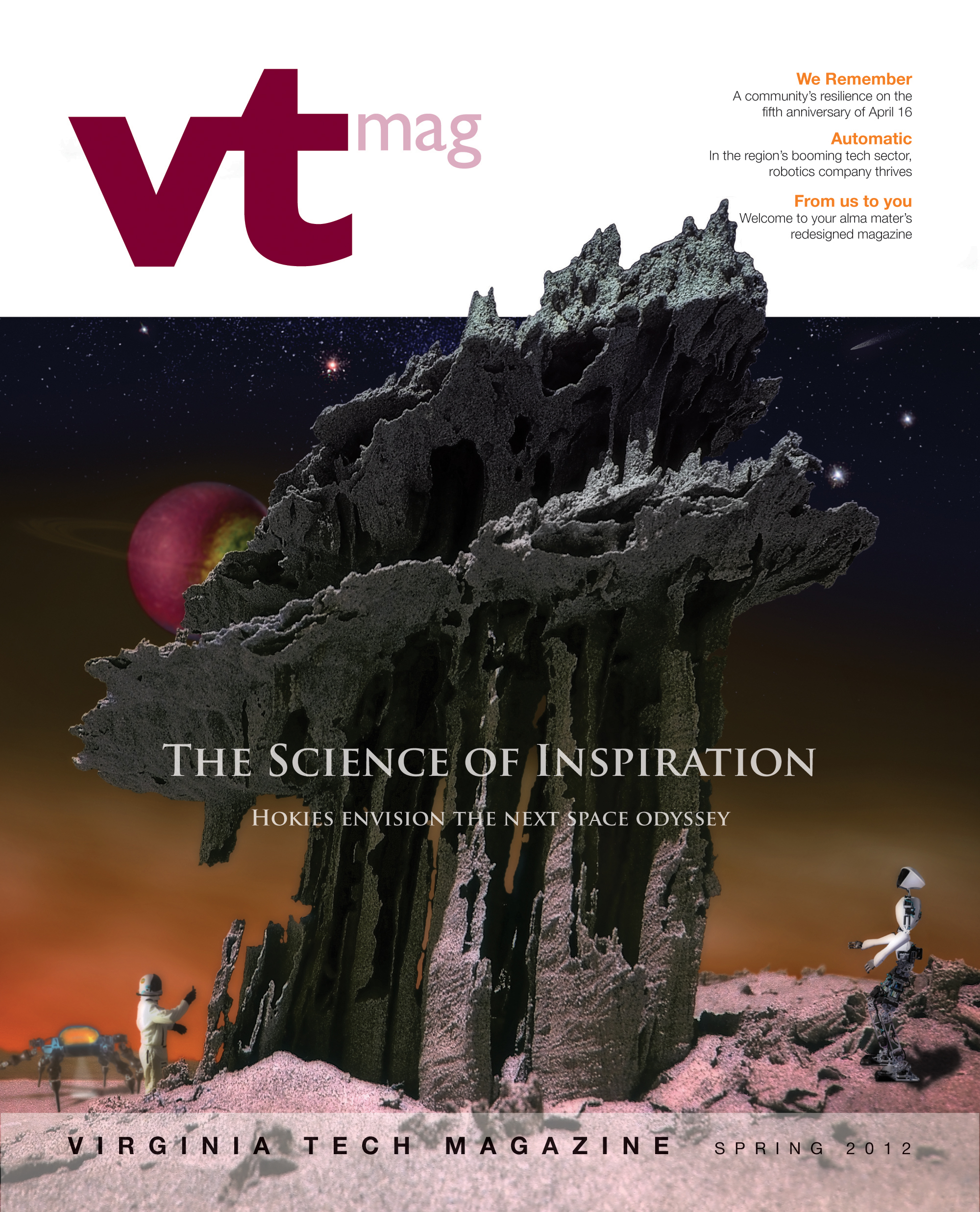Spring 2012 Virginia Tech Magazine examines the future of space exploration, the region's academia-business connection

Newly redesigned, the spring 2012 edition of Virginia Tech Magazine offers a diverse slate of feature stories, faculty and alumni profiles, and university news of particular note.
For the edition's cover story, Virginia Tech alumni and faculty weigh in on the future of spaceflight, including NASA's role in society, traveling farther out into the solar system, and the privatization of the industry.
In the first installment of a series on the tech sector in the Roanoke and New River valleys, the inner workings of a thriving, alumnus-led robotics company exemplify the increasingly important links between a research university and job creation.
A profile of National Geospatial-Intelligence Agency Director Letitia "Tish" Long, who received a degree in electrical engineering from Virginia Tech in 1982, reveals a leadership style that enacts the shift toward openness and collaboration occurring, post-9/11, across the intelligence community.
A historic presence on campus, not only does the Virginia Tech Corps of Cadets hold its members to the highest standards, cadets must pay an impressive amount of attention to their attire. The latest installment of How Tech Ticks uncovers the meanings behind various elements of the corps' "Dress A" uniform, one of its most recognizable.
Five years after the April 16 tragedy, five members of the Virginia Tech community reflect on the resilience, strength, and warmth of the Hokie Nation. From a sociology professor emeritus' study of campus desk graffiti to the frontline memories of a Virginia Tech Rescue Squad officer, these essays capture the university community's prevailing sensibilities as it respects the past and looks toward the future.
Virginia Tech Magazine is available online. Request hard copies by emailing Jesse Tuel, magazine editor.
Dedicated to its motto, Ut Prosim (That I May Serve), Virginia Tech takes a hands-on, engaging approach to education, preparing scholars to be leaders in their fields and communities. As the commonwealth’s most comprehensive university and its leading research institution, Virginia Tech offers 240 undergraduate and graduate degree programs to more than 31,000 students and manages a research portfolio of $513 million. The university fulfills its land-grant mission of transforming knowledge to practice through technological leadership and by fueling economic growth and job creation locally, regionally, and across Virginia.











